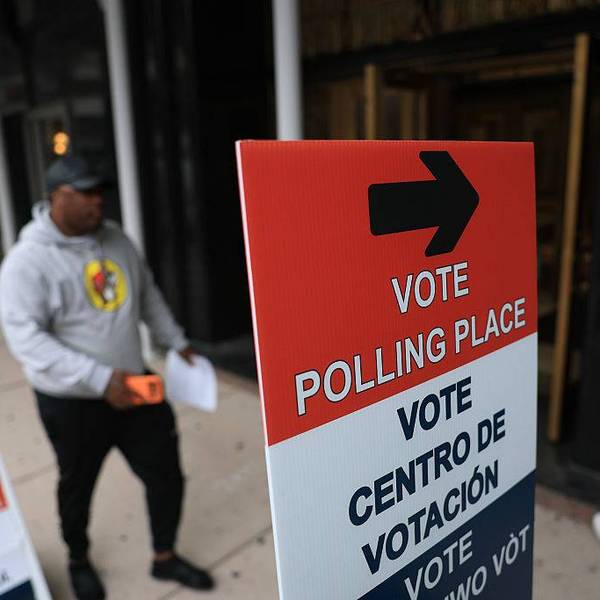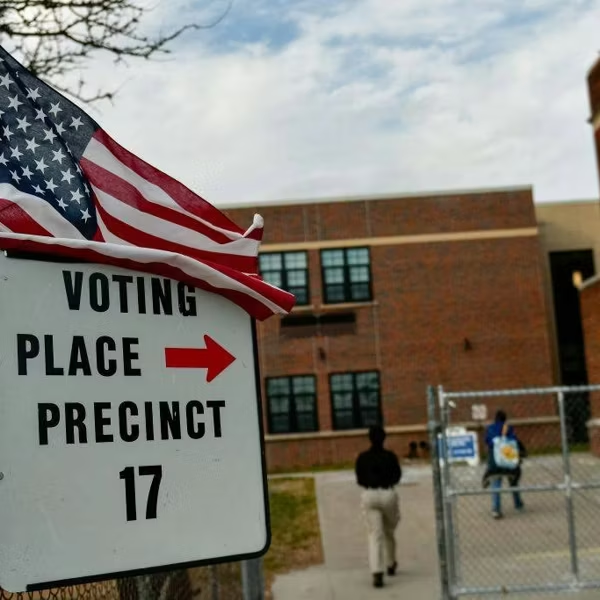For generations, Americans have been taught that the United States is the world’s beacon of democracy. Politicians across the spectrum speak of the nation as a “shining city on a hill,” a place where freedom and the rule of law set the standard for the rest of the world. But the truth is harder to swallow: the U.S. is drifting away from liberal democracy and toward authoritarianism.
A survey of more than 700 political scientists conducted by Bright Line Watch in 2020 found that the vast majority believe the U.S. is rapidly moving toward some form of authoritarian rule. Scholars rated American democracy on a scale from zero (complete dictatorship) to 100 (perfect democracy). After Donald Trump’s first election in November 2016, they gave it a 67. Several weeks into his second term, the score had plunged to 55. Elections, rights, and freedoms are under attack—and America is running out of time to save its democracy. The experts’ warnings are not abstract; they reflect a country where voter suppression, gerrymandering, corporate influence, a compliant Supreme Court, and executive overreach are eroding the foundations of democratic governance. When citizens are uninformed—or choose not to vote—the systems of power tilt toward elites, making it easier for authoritarian forces to consolidate control. Authoritarian forces also thrive on fear—fear of immigrants, political opponents, or anyone deemed an outsider—turning Americans against one another and eroding the inclusive ideals that once defined the nation as a melting pot.
One of the hallmarks of authoritarian systems is the concentration of power in a single office. In the US, the presidency has been steadily amassing authority for decades. Presidents of both parties have expanded executive power—from Woodrow Wilson, who during and after World War I oversaw a massive expansion of federal authority, centralized control over the economy, and signed the Espionage and Sedition Acts to suppress dissent, to more recent administrations. After September 11, 2001, Congress handed the executive branch sweeping powers through the Authorization for Use of Military Force, essentially giving presidents a blank check for war. Since then, presidents have increasingly governed through executive orders and “emergency” declarations, bypassing Congress altogether. Barack Obama further expanded executive authority through extrajudicial drone strikes, targeting individuals abroad without judicial review or due process, demonstrating that executive power can be exercised unilaterally and with limited accountability. Meanwhile, Congress has been paralyzed by polarization and gridlock, leaving lobbyists and corporate donors to fill the vacuum. The Senate’s structure, which gives Wyoming and California the same representation despite a 70-fold population difference, allows minority rule to dominate national policy. Gerrymandering and voter suppression further hollow out electoral accountability. A government that concentrates power in the executive while undermining the voice of ordinary citizens is not functioning as a democracy.
Wake up, America! It’s one thing to recognize the nation’s slide toward authoritarianism and complain about it—it’s another entirely to take action.
Authoritarian governments also justify extraordinary powers in the name of “security.” The U.S. is no exception. The National Security Agency’s mass surveillance programs, exposed by Edward Snowden in 2013, revealed a government that watches its citizens on a scale once unthinkable. At home, local police departments increasingly resemble military units, rolling out armored vehicles and tear gas against peaceful protesters. We saw this during Occupy Wall Street, Standing Rock, and Black Lives Matter uprisings. The deployment of force against citizens exercising their constitutional rights should alarm anyone who values democracy. Yet the normalization of militarized policing has created what philosopher Giorgio Agamben wrote as a “state of exception”—where emergency measures become everyday tools of governance.
Yes, Americans still enjoy constitutional rights—but too often these rights exist more on paper than in practice. Free speech? Tell that to whistleblowers like Chelsea Manning, Snowden, or Reality Winner, who were prosecuted under the Espionage Act for revealing government misconduct. Voting rights? They’ve been under relentless attack, especially since the Supreme Court’s 2013 decision in Shelby County v. Holder, which gutted protections for minority voters. States have since imposed strict voter ID laws, purged voter rolls, and closed polling places in Black and Latino communities. Even fundamental rights like reproductive freedom are being stripped away. The Supreme Court’s 2022 decision in Dobbs v. Jackson Women’s Health Organization overturned Roe v. Wade, unleashing a wave of state-level abortion bans. Millions of women and people who can become pregnant no longer have control over their own bodies. That’s not democracy; that’s state control of private life.
Another clear sign of authoritarian drift is the domination of politics by wealthy elites. Since the Supreme Court’s 2010 Citizens United v. FEC decision, corporations and billionaires have been able to pour unlimited money into elections. Political campaigns are dominated by super PACs and billionaire donors. Our democracy is no longer guaranteed—from Wall Street to the White House, power is slipping into the hands of a few. Political scientists Martin Gilens and Benjamin Page found in 2014 that “the preferences of the average American appear to have only a minuscule, near-zero, statistically non-significant impact upon public policy,” leaving ordinary voters almost powerless to shape the laws that govern them.
The authoritarian character of the United States cannot be understood solely within its borders. With more than 750 military bases worldwide and a defense budget larger than the next ten nations combined, the United States functions as a global empire. Military interventions—from Iraq to Afghanistan to drone strikes across the Middle East and Africa—have often been launched without meaningful Congressional approval. Empire abroad normalizes authoritarianism at home. Militarized policing, mass surveillance, and a bloated national security state are justified by the logic of “permanent war,” which also benefits defense contractors, private security firms, and other corporate interests that profit from endless conflict. As Hannah Arendt wrote, imperialism abroad often requires repression at home. That warning has become reality.
The United States still holds elections and maintains a written constitution, but appearances are misleading. The US still calls itself a democracy, but in practice, authoritarian forces are calling the shots. What makes American authoritarianism distinctive is its velvet glove: it is not a dictatorship in the classical sense but a regime where democratic symbols cloak undemocratic realities. Its most effective disguise is the illusion of freedom itself—an ideology of free market capitalism that promises choice while consolidating power in the hands of a few. Americans are told they live in the land of opportunity, yet the choices available to them—whether in the marketplace or at the ballot box—are increasingly constrained by corporate monopolies and two political parties beholden to the same economic elites. Recognizing this drift is the first step toward reversing it. Unless structural reforms are undertaken—curbing corporate power, restoring voting rights, protecting civil liberties, and demilitarizing both foreign and domestic policy—the United States risks cementing its place not as the defender of democracy but as an exemplar of its decline.
It is a bitter irony that 66,000 living World War II veterans—who risked everything to fight authoritarianism abroad—now witness the creeping authoritarianism at home and the steady erosion of the freedoms they fought to secure. Their sacrifices are a reminder that democracy is fragile and must be actively defended.
Unless structural reforms are undertaken—curbing corporate power, restoring voting rights, protecting civil liberties, and demilitarizing both foreign and domestic policy—the United States risks cementing its place not as the defender of democracy but as an exemplar of its decline.
Democracy is not self-sustaining. If Americans care about preserving freedom, they must act: vote in every election—from school boards to city councils to state legislatures—and recognize that their power extends beyond the ballot box. As consumers and shareholders, they can choose carefully which corporations they support, amplifying businesses that align with democratic values while withdrawing support from those that undermine them. Citizens can also engage directly with elected officials, starting meaningful discussions to make their voices heard, and volunteer with nonpartisan nonprofit advocacy organizations and watchdog groups that protect the democratic process, civil rights, and corporate and government accountability and transparency. Pushing for structural reforms that rein in executive power and corporate influence, challenging fear-mongering narratives, and defending the rights of marginalized communities are all essential steps to reclaiming and preserving democracy.
We each have a role to play. Wake up, America! It’s one thing to recognize the nation’s slide toward authoritarianism and complain about it—it’s another entirely to take action. Be no bystander; democracy depends on participation. We ignore its demise at our peril.




